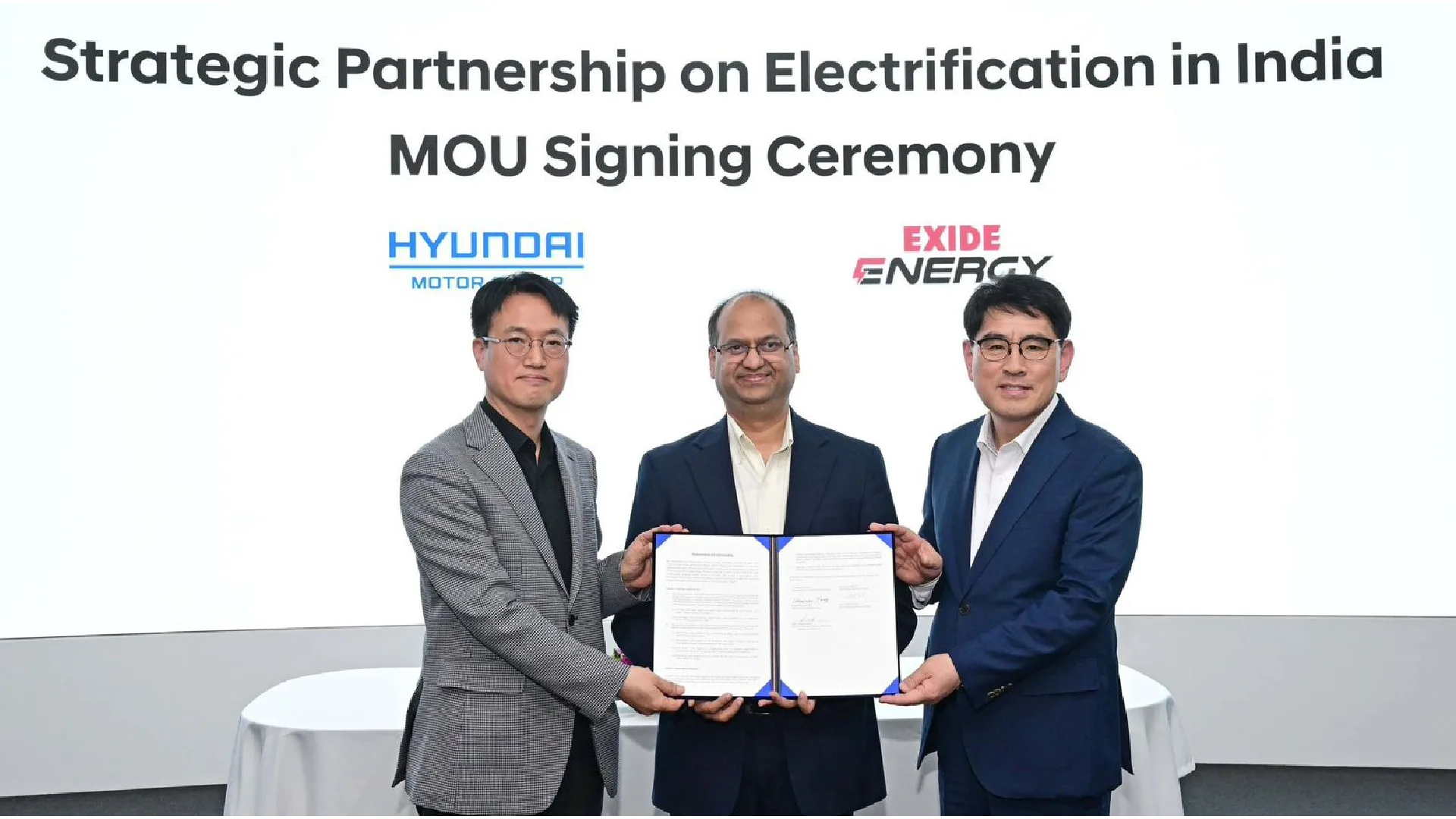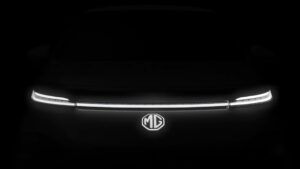Hyundai and Kia have signed a memorandum of understanding with India’s Exide Energy Solutions Ltd to supply batteries for their electric vehicles. The newly formed alliance will help the two automotive giants produce their electric vehicles locally in India and gain an edge in the competitive EV car market.
On Monday, Hyundai, Kia and Exide signed the MoU specifically focusing on lithium-iron-phosphate (LFP) cells for the future electric vehicles of the sister South Korean auto majors. In a statement, the duo said that the partnership with Exide Energy is aimed at localising their EV battery production in India. For this, Exide Energy plans to start producing EV battery cells for Hyundai and Kia by the end of this year.
“Through this global partnership with Exide Energy, we will gain a competitive advantage by equipping Hyundai Motor and Kia’s future EV models in the Indian market with locally produced batteries,” Heui Won Yang, President and Head of Hyundai Motor and Kia’s R&D Division, said in a statement.
“India is a key market for vehicle electrification due in part to the government’s carbon neutrality goals, which makes securing cost competitiveness through localised battery production crucial,” Yang added.
The alliance had an immediate effect on the stock market, with shares of Exide Industries rallying by about 15% to a record high. Shares of Hyundai Motor and Kia Corp also saw a significant rise.
Indian EV Market Significance
Hyundai, Kia and Exide’s new collaboration is yet another example of the rapid growth of the Indian EV industry and its significance in the global EV transition. Much like all other automotive firms, Hyundai and Kia are planning to expand their presence in India, which currently serves as one of their four biggest revenue-generating markets, alongside the United States, South Korea and Western Europe, as per a report by Reuters.
In numbers, Hyundai plans to invest about 3.25 trillion won for the next 10 years from 2023 in India. In this period, the company plans to launch six EV models by 2028 and set up charging infrastructure across the country. Similarly, Kia is likely to launch locally produced small-sized electric cars by next year, among other EVs in due time.
Other than the sister firms, auto majors like Tesla and VinFast, are also eyeing India as a viable market to build EV production facilities in. This shall help them produce EVs for the budding local market as well as exports in the surrounding markets.








